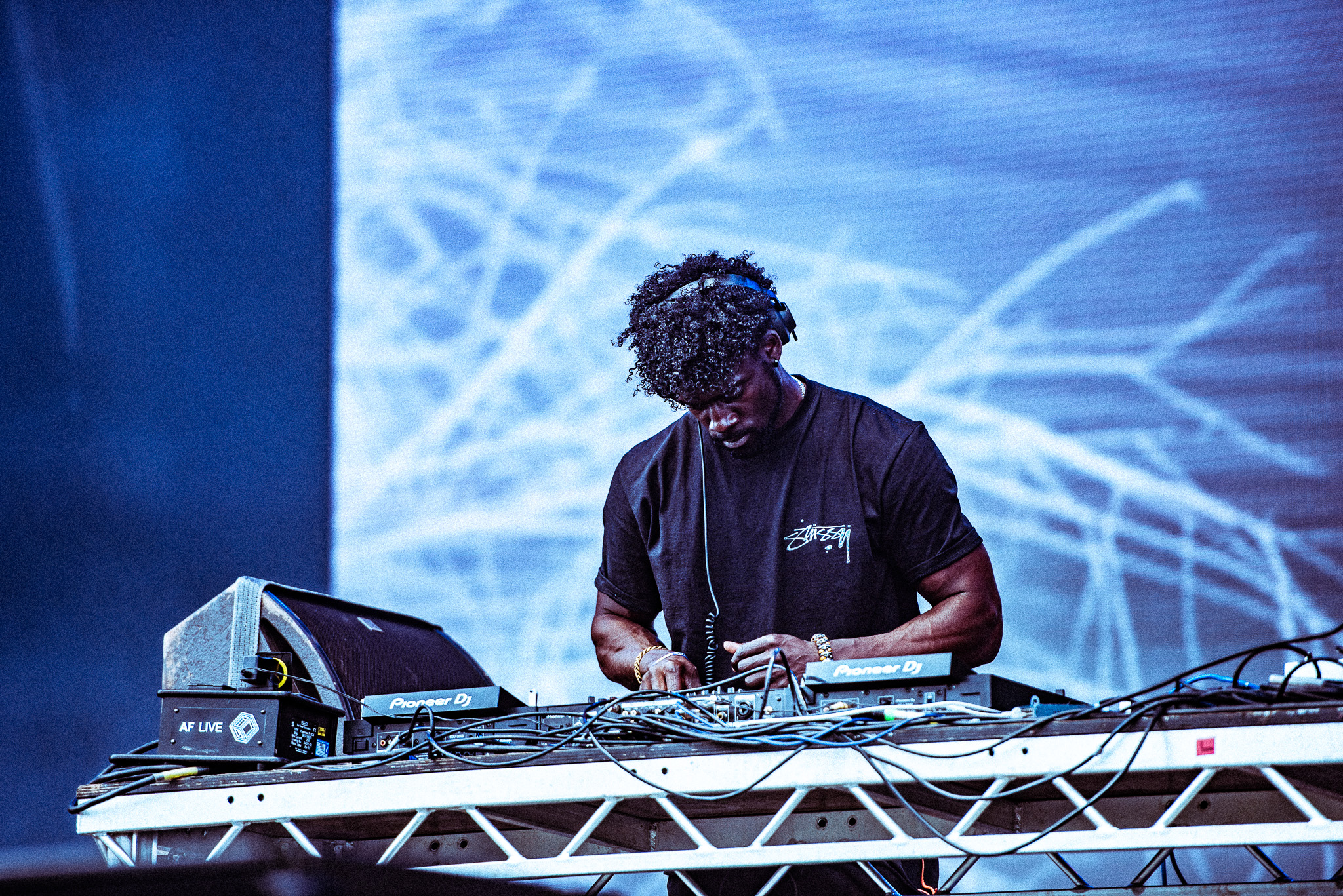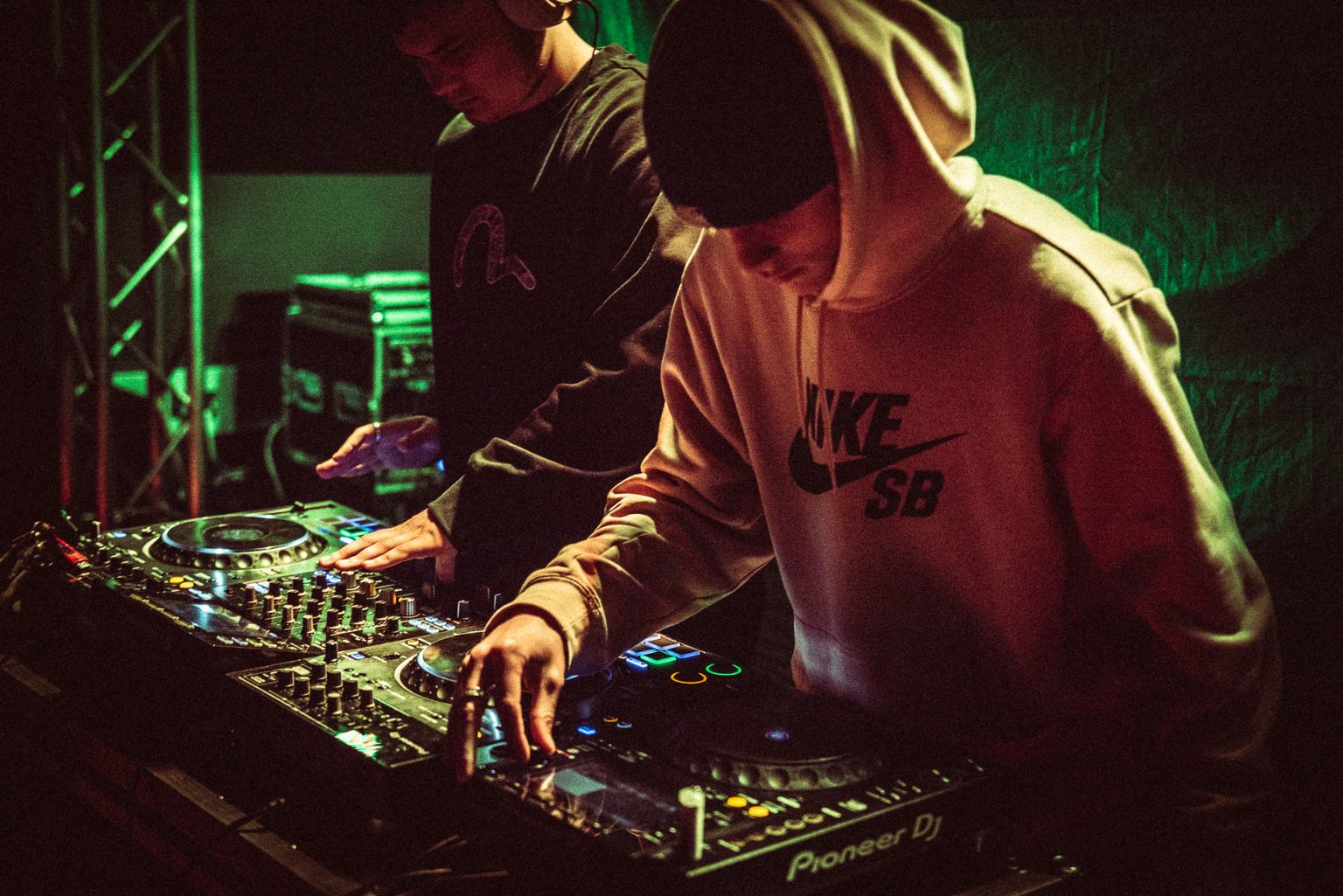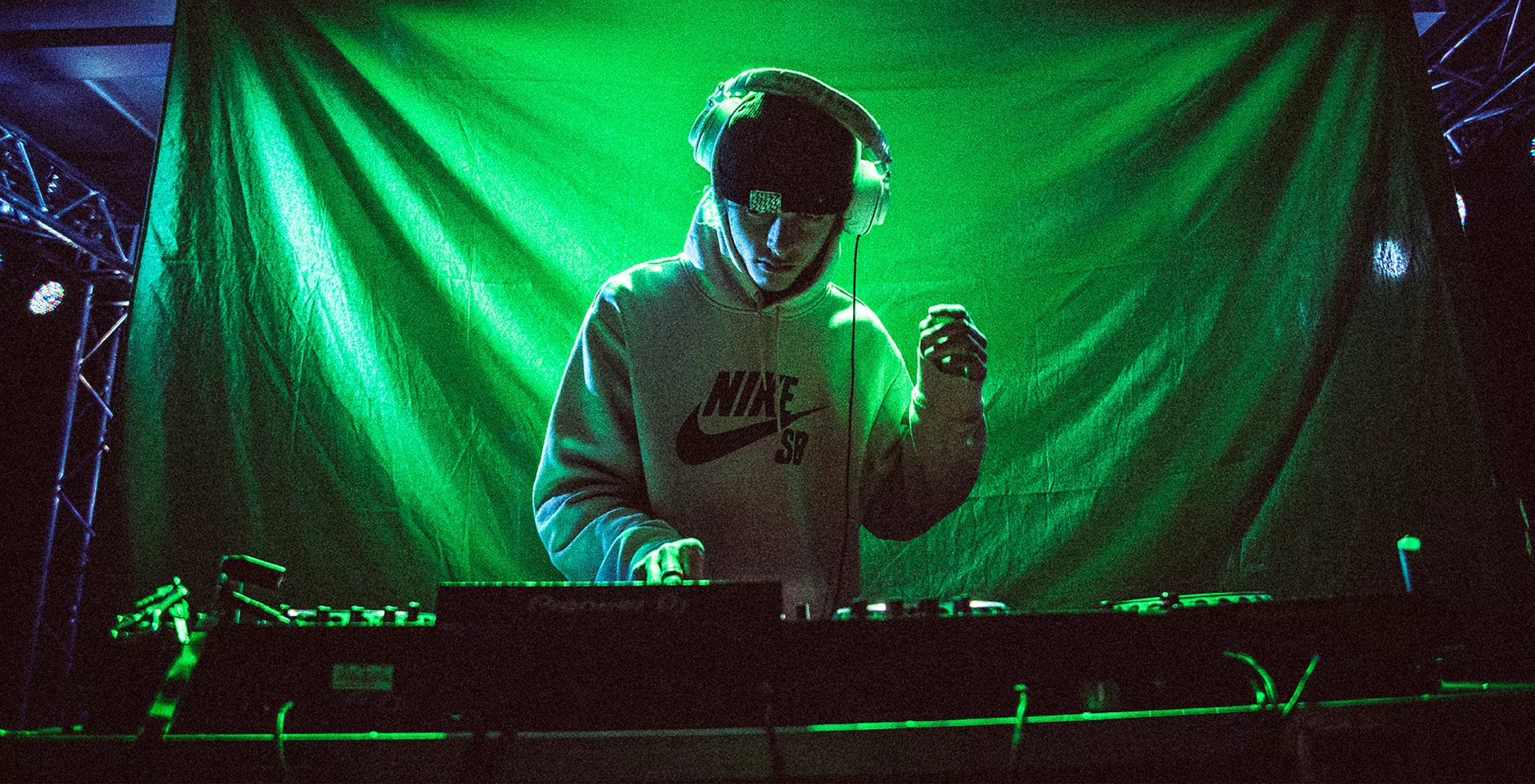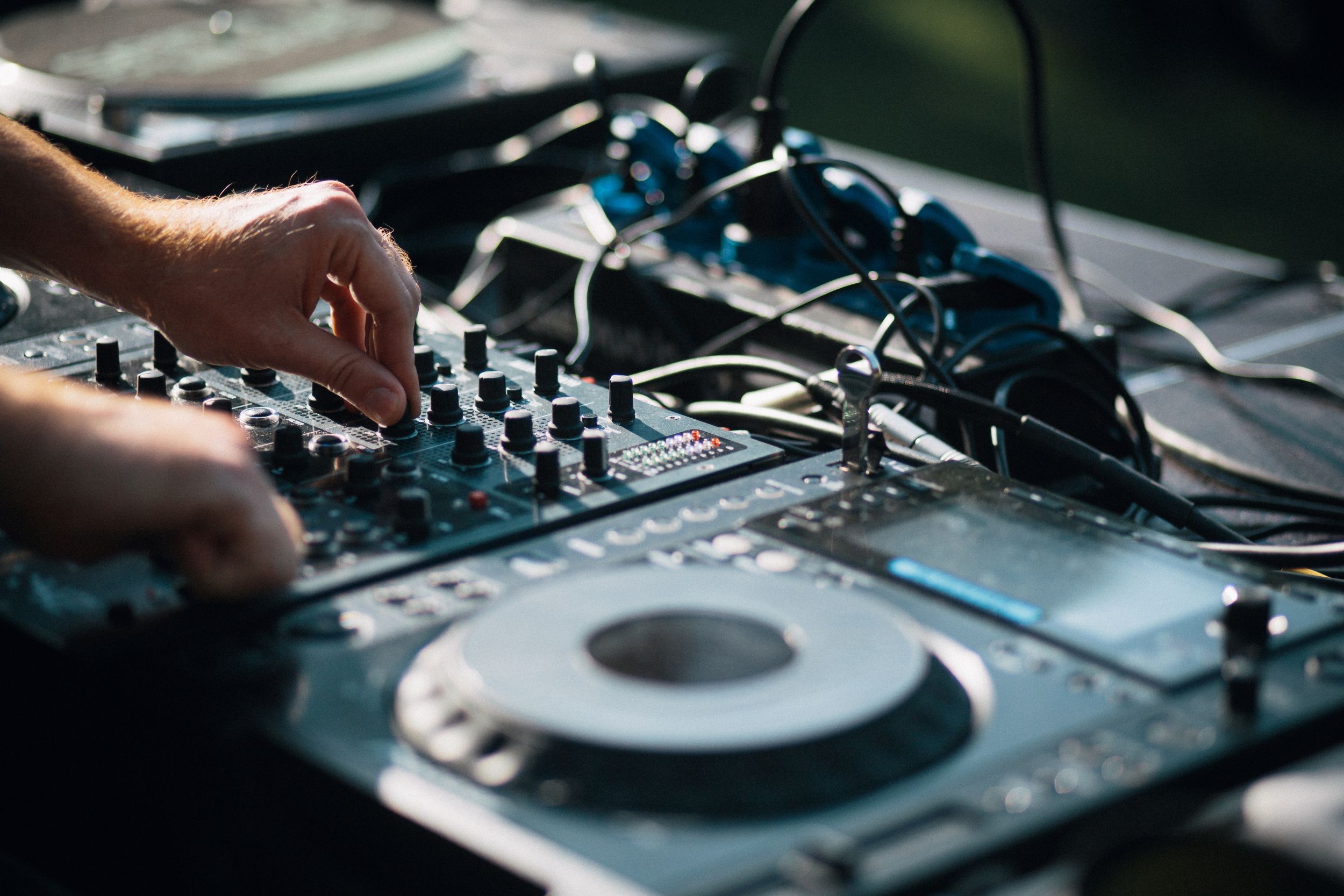Anyone can learn the basics of DJing, but to master the art and become successful takes immense skill, creativity, practice and patience. While it may seem like DJs are just playing songs, they are in fact crafting a sonic journey tailored to the mood and vibe of the event.
Do you fancy becoming a DJ? Look no further, we’ve put together this guide on how to build a successful career.
![]()
What is a DJ?

In short, a DJ is an individual who uses equipment to play multiple sources of music seamlessly, by using various music manipulation techniques to avoid pauses and gaps when putting songs together. There are different types of DJs, for instance there are ones who perform in clubs, work on the radio, are hired for weddings, specialise in turntablism, or just perform for fun in their bedroom. All of these different types of DJs cater their style and skill for different audiences.
Over the last couple of decades, technological advances made it easier to become a DJ while simultaneously, the electronic music industry grew which has resulted in a rise in DJs.
![]()
How can I learn to DJ?

Firstly, it’s important to consider what your goals are – do you want to be world famous, or just have fun? What genre (techno, house, disco, drum and bass etc) of music do you want to play? Do you want to be a vinyl or digital DJ? Answering these questions will help you to figure out the best way to learn. The 5 core steps to DJing success are: Gear, Music, Techniques, Playing out, and Promoting Yourself.
Start by researching the basic techniques, equipment and styles. This will help you to find your perfect setup, whether that be traditional vinyl turntables, digital controllers, or software based. Take your time learning about different decks, laptops, mixers, headphones, and speakers to ensure you make the suitable choices for you.
Next, you will need to learn the fundamentals. This includes basic concepts such as beatmatching, mixing, EQing, and song selection. Here’s a quick rundown: beatmatching is where one track’s playing speed/tempo is adjusted so that its beats per minute match with another track. The two tracks will then play simultaneously at the same tempo and merge together as one, rather than clash. This allows DJs to blend different tracks together, or create new versions of songs. Mixing is when you play music for an extended period of time, combining a song’s ending with the next song’s beginning to make a seamless transition. EQing is the process of adjusting the level/amplitude of specific frequencies to achieve a clear and balanced mix. These concepts will be key for you to master!
It’s important to practice, practice, practice. Experiment with different mixing styles to help you to develop your own sound. Make sure you record and listen to your mixes regularly as this will help you to find where to improve. You should also share your mixes with friends and family, or post them on social media and listen to the feedback. Again, this will help you find areas of improvement while also promoting yourself.
![]()
What are the best apps to learn to DJ?
There are many apps out there to help you, some even offer free versions or trial periods. Some of the best apps include:
- Virtual DJ: a versatile software which is free to beginners, it has features like automatic beatmatching, effects, and virtual decks. It also offers tutorials and guides to help you get started with DJing.
- Traktor DJ: developed by Native Instruments, offers features such as waveform display, beat-syncing, loop recording, and a wide range of effects.
- djay: a popular app which offers features like automatic beat and tempo detection, sample pads, and access to streaming services like Spotify. It also supports MIDI controllers for a more tactile DJing experience.
- Cross DJ: a comprehensive app which offers features like automatic BPM detection, beatmatching, EQ, and a range of effects. It supports MIDI controllers and DVS (Digital Vinyl System) integration for advanced mixing.
![]()
What is the best way to learn how to DJ?

As with everything, practice makes perfect. Learning by doing and experimenting with different equipment and genres is a great way to perfect your own genre/style.
There are plenty of courses available to choose from. We offer a Level 3 Music Production course which is a great starting point to learn the latest music technology, with unique access to industry-standard software. Our partner, dBs Institute, offers an Access to HE Diploma in DJ & Electronic Music Production, where you will learn the fundamentals of music-making and production.
Similarly, there are websites like YouTube, Skillshare, and Udemy which offer tutorials on various techniques, equipment setup, and music theory. These are a great place to learn some basics.
You could also consider seeking out a mentor or taking private DJ lessons. Learning from an experienced DJ will give you a wealth of guidance and feedback, as well as support in developing your skills.
![]()
How hard is it to learn how to DJ?
If you are passionate, motivated and organised, you will find the learning process easier and more enjoyable.
Having a musical background, technical ability, and time available to practise will help you to learn the skill. If you have a strong understanding of music theory, rhythm, and song structure, you may find it easier to grasp concepts such as beatmatching, phrasing, and song selection.
Similarly, being familiar with audio equipment, software, and technology can make the learning process a lot smoother. If you are already comfortable using electronic devices, you may find it easier to adapt to DJing tools and techniques.
Spending time doing online courses, workshops, speaking to mentors and gathering feedback will help you to learn and overcome challenges.
![]()
How long does it take to learn to DJ?

There is no set timeline for learning how to DJ as it’s a continuous journey of improvement and development.
With focused practice, some people may become competent DJs in a matter of months, while others may take longer. The key is to stay committed, dedicate time to practise, and enjoy the process of learning and experimenting with music.
![]()
Learn how to DJ with Access Creative College
If you want to become a successful DJ, we can help you. Apply online for our music production (or A2HE) course today!
- The History of Filmmaking: From the First Film to Modern CGI Effects - December 18, 2024
- 10 Ideas for the best gaming desk setup in 2025 - December 13, 2024
- Top 20 Christmas Songs Ever Made - December 10, 2024